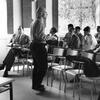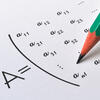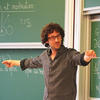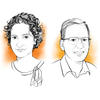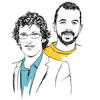You are here
Alessio Figalli, Fields Medal 2018
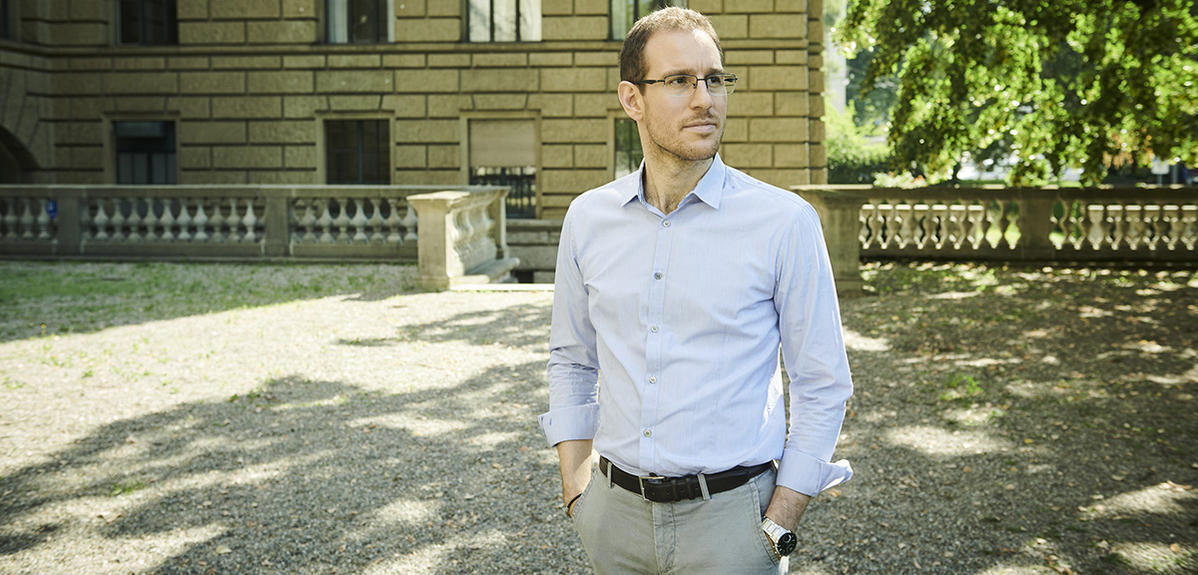
The Fields Medal is awarded every four years to researchers under the age of 40 at the International Congress of Mathematicians (ICM), currently being held in Rio de Janeiro, Brazil, until August 9. An international researcher currently posted at the Swiss Federal Institute of Technology in Zurich (ETH Zurich), Alessio Figalli has left an impressive track record in France. Recruited by the CNRS as a researcher in late 2007, before defending his thesis, this expert in mathematical analysisFermerLike geometry or algebra, analysis is one of the fundamental branches of mathematics. completed his PhD at record speed, dividing his studies between Italy’s Scuola Normale Superiore di Pisa (SNS) and France’s École Normale Supérieure in Lyon, under the co-direction of Luigi Ambrosio and Cédric Villani.1 The latter, who is in Rio to congratulate the prizewinner, kindly agreed to talk to us about his former student and his phenomenal speed…
When you were co-directing his thesis, did you already feel that you were dealing with a Fields Medal winner?
Cédric Villani: It was immediately obvious to me that Alessio Figalli was an extraordinary mathematician. He completed his thesis in less than eighteen months2, which is not even half the statutory time allotted. Although a rare occurrence, it was no coincidence that the CNRS recruited him even before he defended his thesis in late 2007. In the reference that I wrote in 2012 in support of his application for a position at Princeton, I stated that I already considered him to be one of the most impressive young analysts I had ever worked with, and that he was blessed with incredible speed and working capacity. Alessio Figalli was able to find in an instant a way to unlock a problem. He is a creative thinker and a master of inquisitive exchange, and his astounding ability to fully digest the large volume of scientific literature he reads makes him deserve the nickname of “mathematical sponge!” In 2010 when I myself won the Fields Medal, some of my colleagues, impressed by his prodigious capacity and speed, already viewed him as a favorite for the ICM 2018 prize.
Calculus of variations, in which he is an expert, may be applied equally to fluid mechanics, finance, artificial intelligence, biology and so on.
C.V.: Indeed. Calculus of variations seeks to find an optimum solution to a given problem from among a family of potential candidates. This approach thus applies to absolutely all fields in which optimization is sought, for instance boat-hull design (for optimal marine hydrodynamics), stock market share pricing (to achieve the best match between supply and demand), transportation of goods and passengers (shortest times, distances, etc.), and so on. Alessio Figalli distinguished himself particularly regarding the “optimal transport” problem, in which the best possible match is sought between a starting configuration and a final configuration. Gaspard Monge initially posed the question of the geometric representation of optimal transportation, but recent decades, and particularly the period since 1985, have seen an upsurge in topics relating to optimal transportation such as regularity, functional and geometric inequalities, relationships with equations in mathematical physics, and so on. Alessio Figalli has solved a number of major problems in this area. More recently, he has begun work on random matrix theoryFermerThe purpose of this theory is to understand certain properties of random matrices made up of random variables. Its applications include integrable systems, quantum chaos, quantum gravity in two or more dimensions via string theory, etc., a subject deriving from quantum mechanics. Due to his incredible ability to explore new horizons, he eventually turns his attention to practically all areas in which analysis is a key component!
He prepared his thesis between France and Italy, joined the CNRS in 2007, became a professor at the École Polytechnique and at the University of Texas at Austin (United States), before joining ETH Zurich. Is such an international profile today a prerequisite to success in mathematics?
C.V.: It is becoming increasingly common to see international profiles in mathematics, and specialists already noted the accolades attributed to such mathematicians at ICM 2014 in Seoul, with all four Fields medal winners having a multicultural educational background, beginning with Brazilian and French mathematician Artur Ávila. Alessio Figalli’s education is made up of different strands, and the the roles of French and Italian schools are prominent, although these notions are becoming increasingly difficult to identify due to the soaring number of international exchanges. In this context, France remains a highly attractive international point of reference in mathematics. The very fact that the CNRS was able to offer Alessio Figalli a post at the extremely young age of 23 doubtless played a cardinal role in his career, and to my mind, research fellow positions at this institution are key to bolstering France’s competitiveness on the world stage. Nevertheless, Alessio Figalli did choose to pursue his senior career outside France within an establishment (ETH) capable of placing far greater resources at his disposal; in this respect, his is one example among many, since in truth we are having problems attracting and keeping our brightest talents.
Certain subjects studied by Alessio Figalli have already been extensively covered by yourself and your own thesis director, Pierre-Louis Lions, who also won the Fields Medal in 1994. Can we speak of a certain “heritage”?
C.V.: Yes, we can say that this is the third Fields Medal in this “line.” There is another "line" of 3 mathematicians with the Fields Medal : that is Schwartz-Grothendieck-Deligne, also considered part of the French school (even though Grothendieck was of mixed nationality and Deligne is Belgian). I see this as an extremely strong symbol of continuity of excellence in this area. Moreover, with Luigi Ambrosio, Alessio Figalli has already worked on certain theories of Pierre-Louis Lions with Ron DiPerna. As I mentioned, while the French school was not the sole factor in Alessio Figalli’s education, it did play an important part. I feel that in particular, the time he spent in the Lyon ecosystem, with Albert Fathi, Alice Guionnet and myself, brought him into close contact with an extremely wide range of multidisciplinary influences at the interface between pure and applied mathematics, with no barriers between analysis, geometry and probability.
Alessio Figalli’s career path in 8 key dates
2007 Joins the CNRS just before defending his thesis
2008 Professor at the École Polytechnique (Palaiseau, France)
2009 Professor at the University of Texas at Austin (United States)
2011 Peccot-Vimont Prize and Peccot Lecture of the Collège de France
2012 European Mathematics Society (EMS) prize
2014 Guest lecturer at the ICM in Seoul
2016 Professor at the ETH Zurich (Switzerland)
2018 Fields Medal
Explore more
Author
Science journalist, author of chilren's literature, and collections director for over 15 years, Charline Zeitoun is currently Sections editor at CNRS Lejournal/News. Her subjects of choice revolve around societal issues, especially when they interesect with other scientific disciplines. She was an editor at Science & Vie Junior and Ciel & Espace, then...








